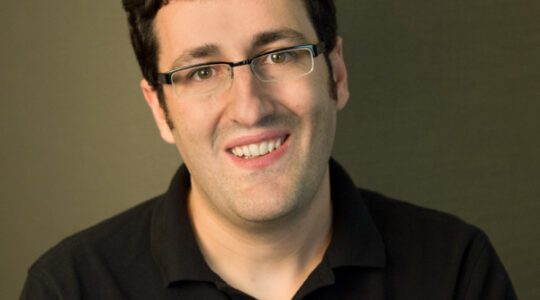News Category: General
-
 General
GeneralCCIS hosts Charles River Crypto Day
- January 12, 2017
By Christian Stafford On Friday, December 9th, 2016, Northeastern University played host to the Charles River Cryptography Day, or, “Crypto Day.” According to Northeastern CCIS Assistant Professor and event organizer, […] -
 Current Students
Current StudentsCCIS student attends Forbes Under 30 Summit
- January 12, 2017
By Mackenzie Nichols For the college-aged aspiring entrepreneur, this is the time to pursue innovative business ideas. Thousands attended the Forbes Under 30 Summit in Boston, and speakers presented their […] -
 Current Students
Current StudentsCCIS Team Wins At UMASS Hackathon with Code x Culture
- January 12, 2017
By Mackenzie Nichols At the University of Massachusetts Hackathon in early October 2016, over 600 aspiring software engineers had three days to develop a unique product or platform from scratch. […] -
TechRepublic
How CCIS plans to reach equal male-female computer science enrollments by 2021
- January 11, 2017
Carla Brodley, dean for the College of Computer Information and Science at Northeastern University, explains how to make computer science attractive to all students to fill workforce gaps. -
General News at Northeastern
CCIS & CAMD Alumni behind former IDEA venture receive $19M to take business to next level
- January 6, 2017
Anderson, AMD’12, and his business partner Yin Wang, PhD’11, launched the startup in 2011 and began building the brand in 2013. Its 250 iPhone and Android apps—ranging from the Anime […] -
General News at Northeastern
Northeastern and Facebook partner on next generation research projects
- December 22, 2016
Facebook announced on Wednesday that Northeastern is one of 17 research universities selected to partner with the company on next generation, joint technology projects. The Sponsored Academic Research Agreement makes […] -
 News at Northeastern
News at NortheasternCCIS dean named fellow of leading international computing society
- December 15, 2016
Carla E. Brodley, dean of the College of Computer and Information Science, has several driving passions. Among them are advancing participation of women and underrepresented minorities in computer science and […] -
General News at Northeastern
New web tool helps online shoppers detect price discrimination on e-commerce sites
- December 12, 2016
Northeastern University researchers have developed a web tool that could help consumers avoid being the victims of online price discrimination. The researchers developed a extension, which officially launched Monday, designed for desktop users searching in Google Chrome, the most-used internet browser. Here’s how it works: Download the extension and visit one of three sites it supports: Amazon, Google Flights, and Priceline Hotels. Once you do a search, it will then quickly send back and seamlessly merge into your screen the results showing whether you are receiving a different price, higher or lower, than the price the servers are getting. -